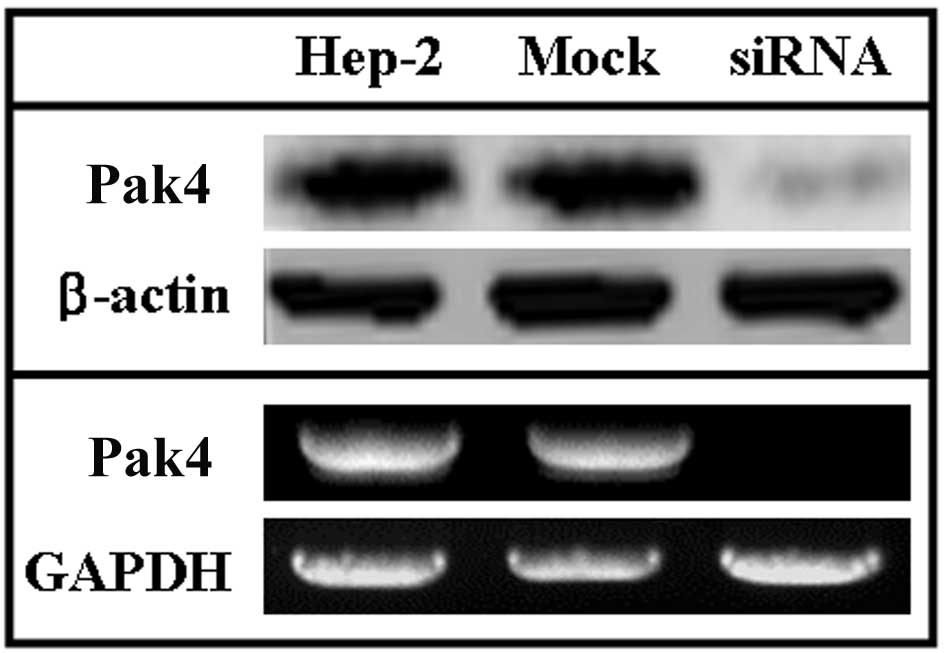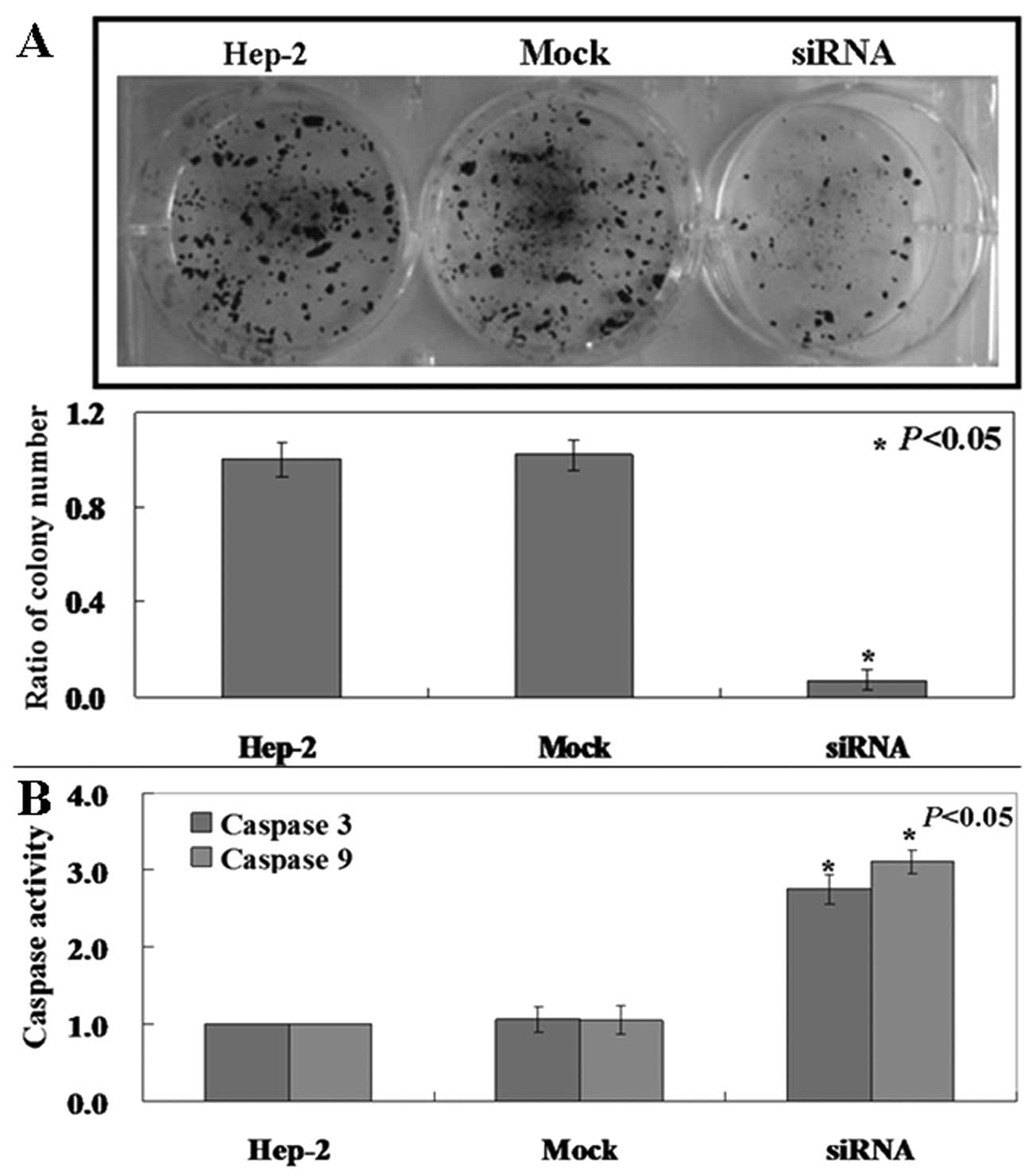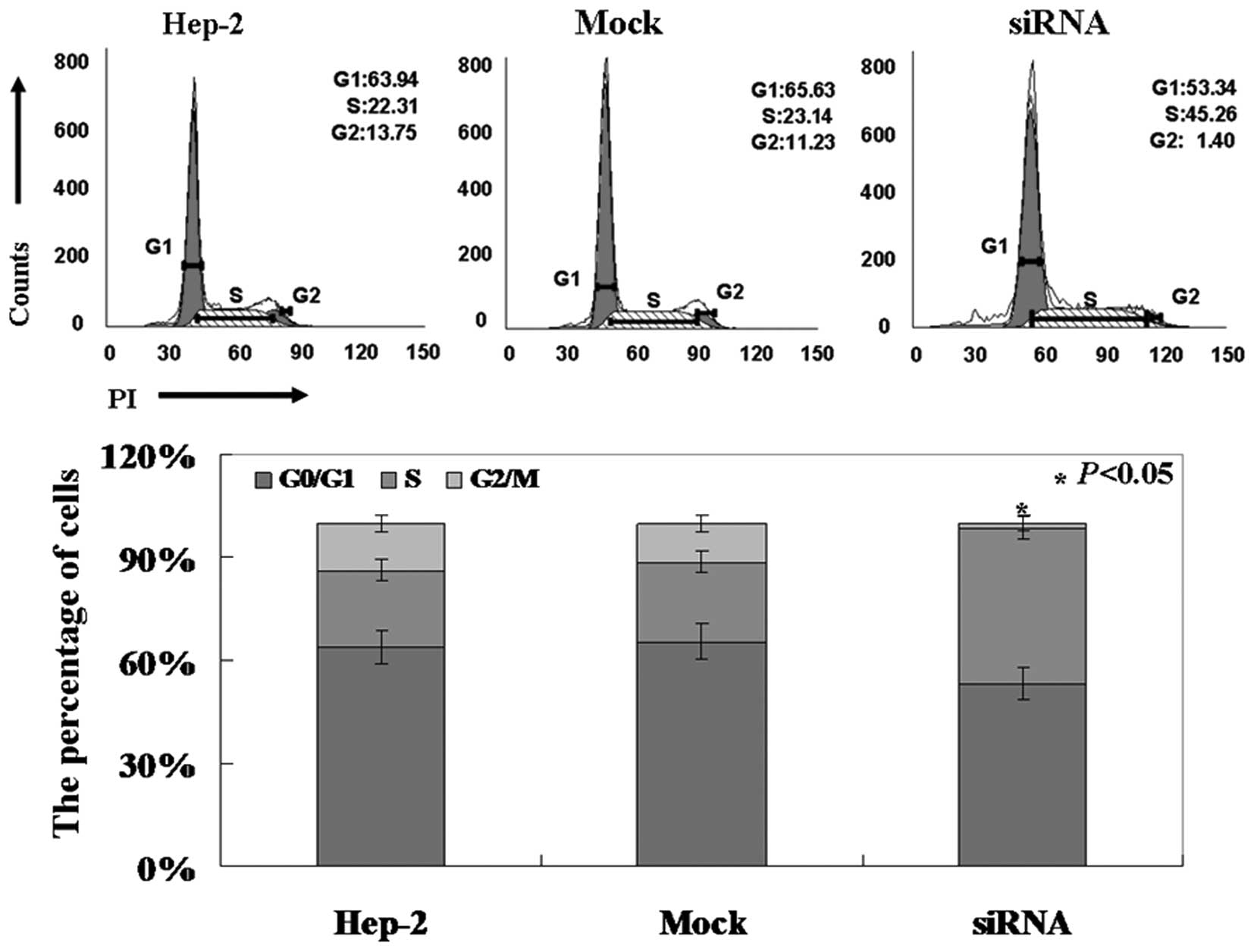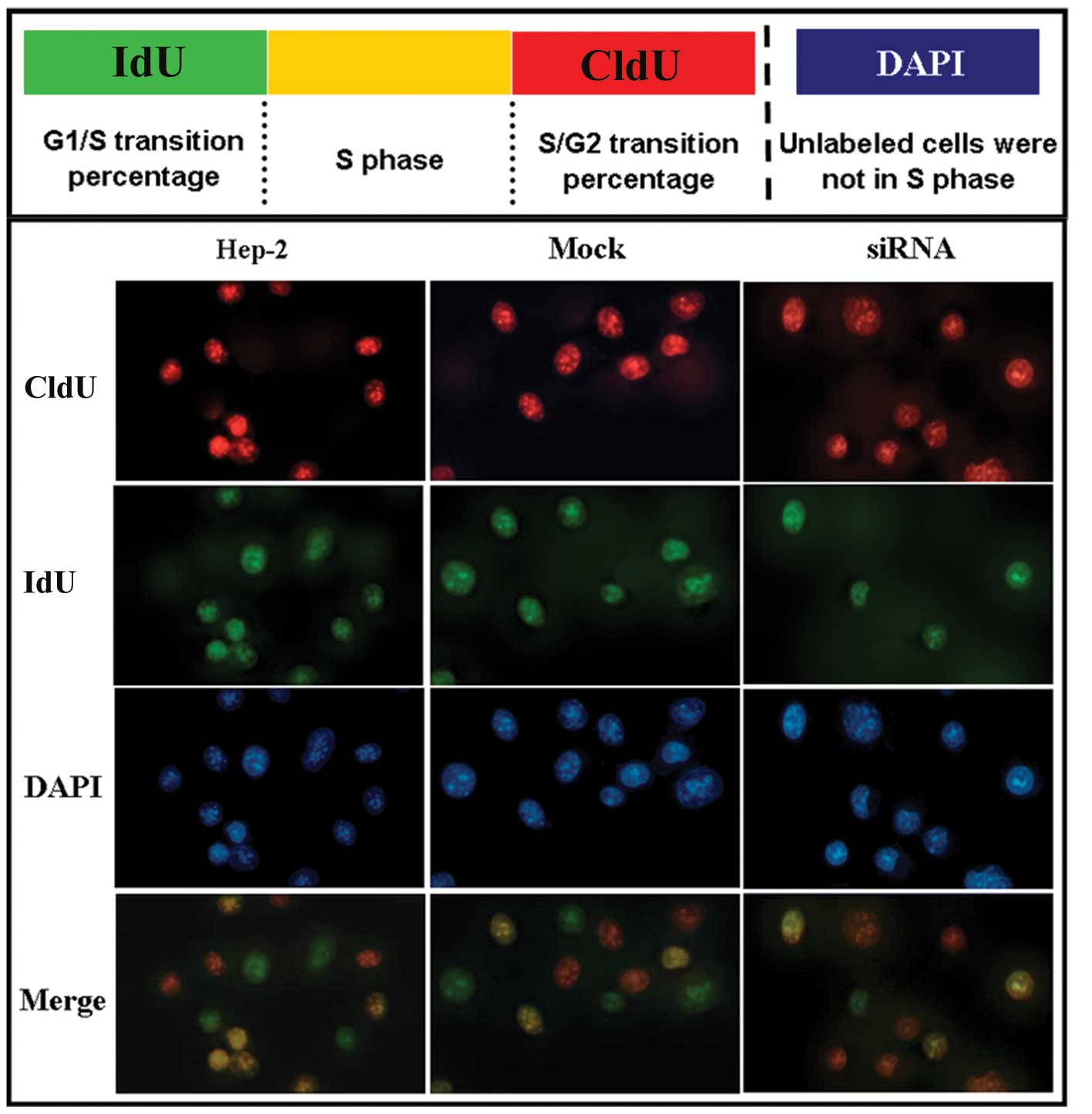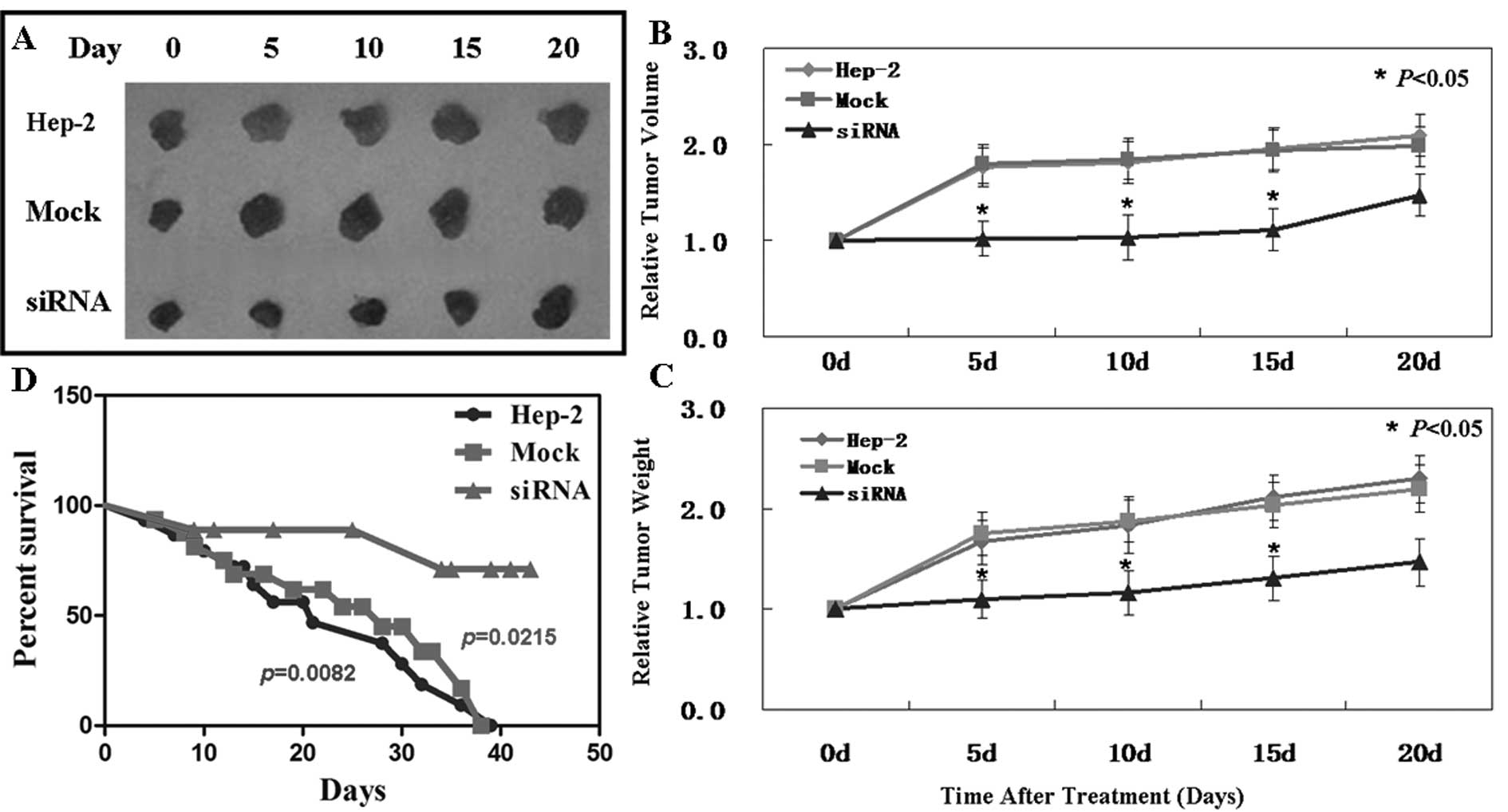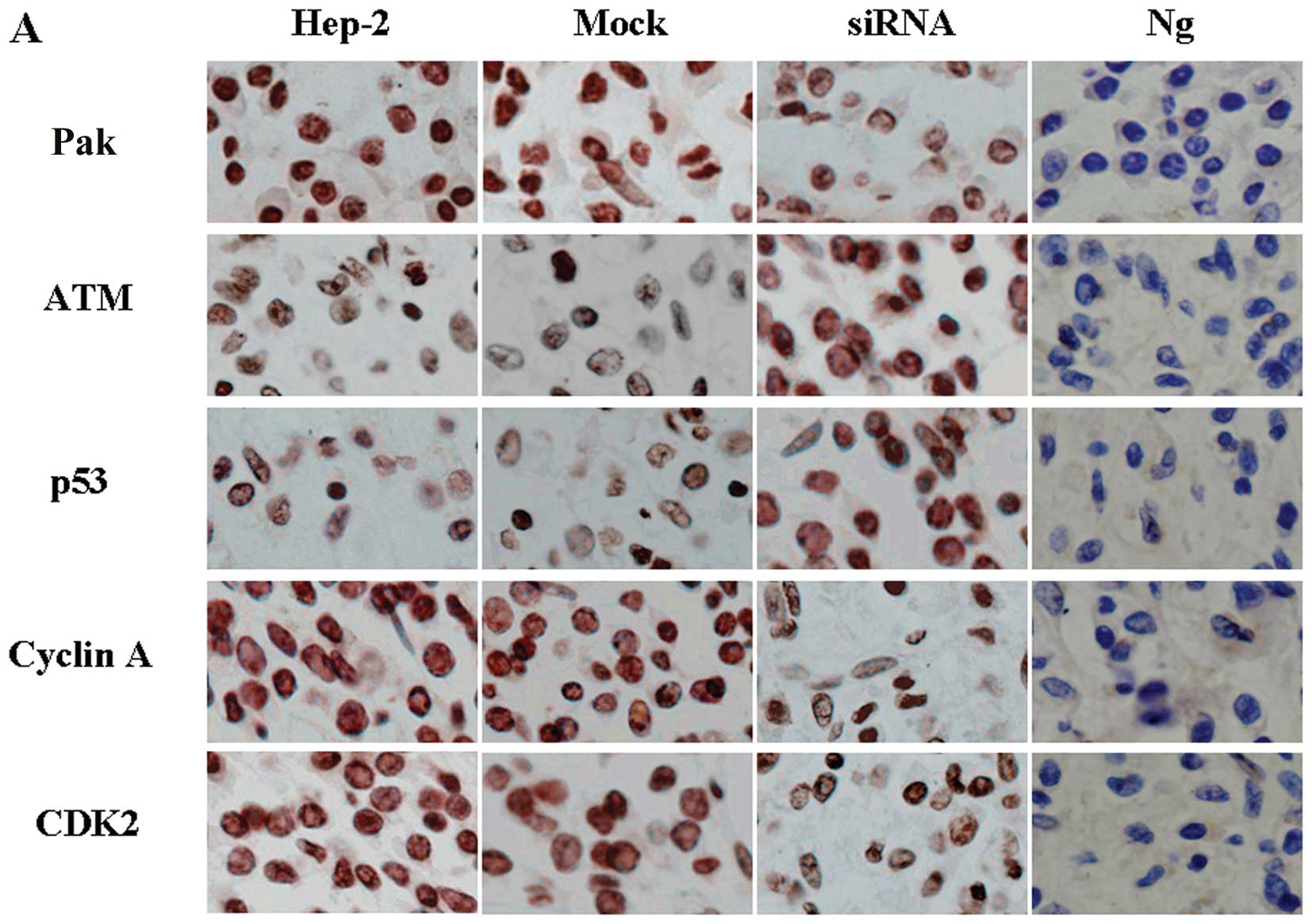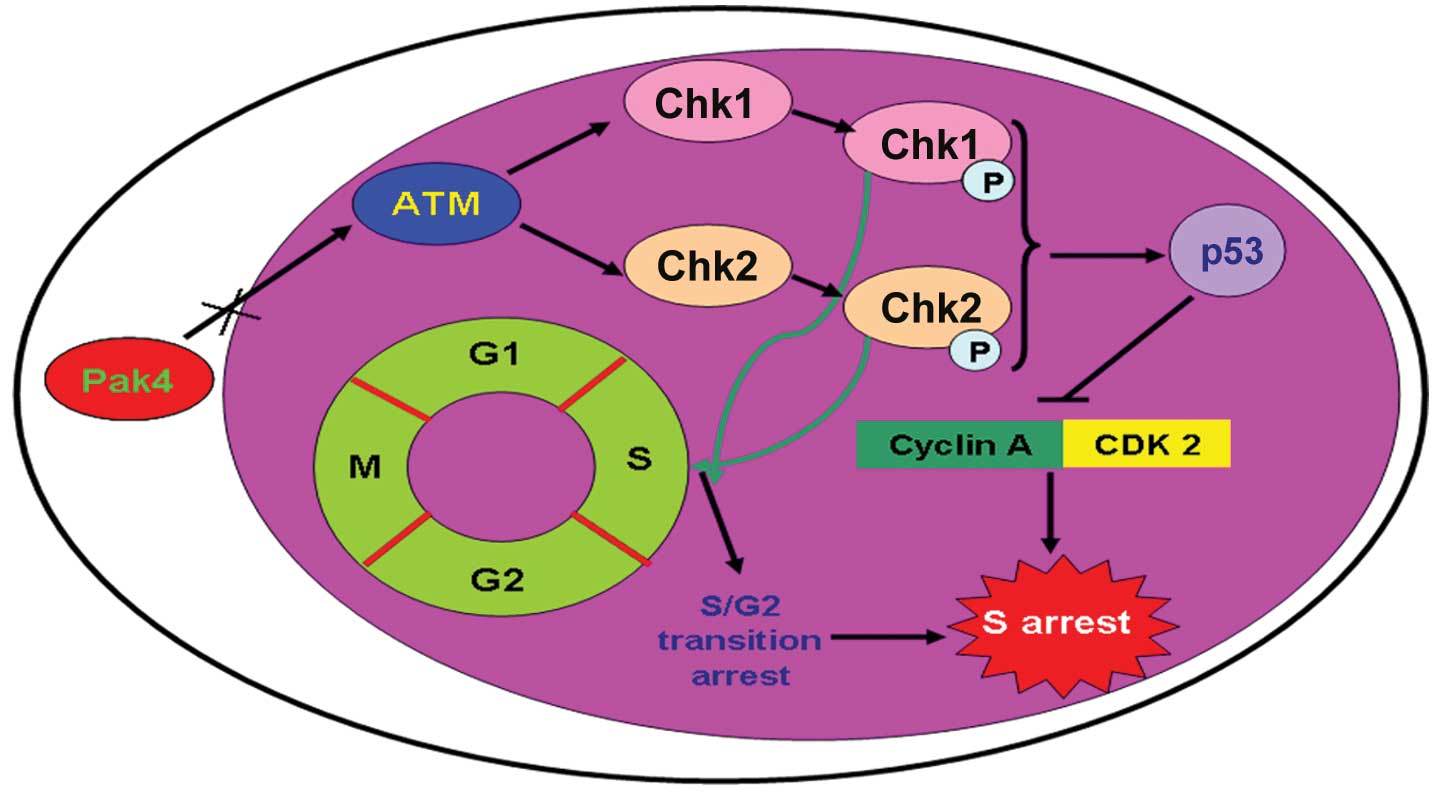|
1.
|
Van Aelst L and D’Souza-Schorey C: Rho
GTPases and signaling networks. Genes Dev. 11:2295–2322.
1997.PubMed/NCBI
|
|
2.
|
Bagrodia S, Dérijard B, Davis RJ and
Cerione RA: Cdc42 and PAK-mediated signaling leads to Jun kinase
and p38 mitogen-activated protein kinase activation. J Biol Chem.
270:27995–27998. 1995. View Article : Google Scholar : PubMed/NCBI
|
|
3.
|
Dutartre H, Davoust J, Gorvel JP and
Chavrier P: Cytokinesis arrest and redistribution of
actin-cytoskeleton regulatory components in cells expressing the
Rho GTPase CDC42Hs. J Cell Sci. 109:367–377. 1996.PubMed/NCBI
|
|
4.
|
Coso OA, Chiariello M, Yu JC, et al: The
small GTP-binding proteins Rac1 and Cdc42 regulate the activity of
the JNK/SAPK signaling pathway. Cell. 81:1137–1146. 1995.
View Article : Google Scholar : PubMed/NCBI
|
|
5.
|
Minden A, Lin A, Claret FX, et al:
Selective activation of the JNK signaling cascade and c-Jun
transcriptional activity by the small GTPases Rac and Cdc42Hs.
Cell. 81:1147–1157. 1995. View Article : Google Scholar : PubMed/NCBI
|
|
6.
|
Brown JL, Stowers L, Baer M, et al: Human
Ste20 homologue hPAK1 links GTPases to the JNK MAP kinase pathway.
Curr Biol. 6:598–605. 1996. View Article : Google Scholar : PubMed/NCBI
|
|
7.
|
Kumar R, Gururaj AE and Barnes CJ:
p21-activated kinases in cancer. Nat Rev Cancer. 6:459–471. 2006.
View Article : Google Scholar
|
|
8.
|
Arias-Romero LE and Chernoff J: A tale of
two Paks. Biol Cell. 100:97–108. 2008. View Article : Google Scholar : PubMed/NCBI
|
|
9.
|
Abo A, Qu J, Cammarano MS, et al: PAK4, a
novel effector for Cdc42Hs, is implicated in the reorganization of
the actin cytoskeleton and in the formation of filopodia. EMBO J.
17:6527–6540. 1998. View Article : Google Scholar : PubMed/NCBI
|
|
10.
|
Callow MG, Clairvoyant F, Zhu S, et al:
Requirement for PAK4 in the anchorage-independent growth of human
cancer cell lines. J Biol Chem. 277:550–558. 2002. View Article : Google Scholar : PubMed/NCBI
|
|
11.
|
Fang MZ, Jin Z, Wang Y, et al: Promoter
hypermethylation and inactivation of
O6-methylguanine-DNA methyltransferase in esophageal
squamous cell carcinomas and its reactivation in cell lines. Int J
Oncol. 26:615–622. 2005.PubMed/NCBI
|
|
12.
|
Thompson HJ and Singh M: Rat models of
premalignant breast disease. J Mammary Gland Biol Neoplasia.
5:409–420. 2000. View Article : Google Scholar : PubMed/NCBI
|
|
13.
|
Jemal A, Bray F, Center MM, et al: Global
cancer statistics. CA Cancer J Clin. 61:69–90. 2011. View Article : Google Scholar
|
|
14.
|
Che XH, Chen H, Xu ZM, et al:
14-3-3epsilon contributes to tumour suppression in laryngeal
carcinoma by affecting apoptosis and invasion. BMC Cancer.
10:3062010. View Article : Google Scholar : PubMed/NCBI
|
|
15.
|
Alessandri G, Filippeschi S, Sinibaldi P,
et al: Influence of gangliosides on primary and metastatic
neoplastic growth in human and murine cells. Cancer Res.
47:4243–4247. 1987.PubMed/NCBI
|
|
16.
|
Dover R and Patel K: Improved methodology
for detecting bromodeoxyuridine in cultured cells and tissue
sections by immunocytochemistry. Histochemistry. 102:383–387. 1994.
View Article : Google Scholar : PubMed/NCBI
|
|
17.
|
Bakker PJ, Stap J, Tukker CJ, et al: An
indirect immunofluorescence double staining procedure for the
simultaneous flow cytometric measurement of iodo- and
chlorodeoxyuridine incorporated into DNA. Cytometry. 12:366–372.
1991. View Article : Google Scholar
|
|
18.
|
Nojima H: Protein kinases that regulate
chromosome stability and their downstream targets. Genome Dyn.
1:131–148. 2006. View Article : Google Scholar : PubMed/NCBI
|
|
19.
|
Gnesutta N, Qu J and Minden A: The
serine/threonine kinase PAK4 prevents caspase activation and
protects cells from apoptosis. J Biol Chem. 276:14414–14419.
2001.PubMed/NCBI
|
|
20.
|
Beamish H, de Boer L, Giles N, et al:
Cyclin A/cdk2 regulates adenomatous polyposis coli-dependent
mitotic spindle anchoring. J Biol Chem. 284:29015–29023. 2009.
View Article : Google Scholar : PubMed/NCBI
|
|
21.
|
Stracker TH, Usui T and Petrini JH: Taking
the time to make important decisions: the checkpoint effector
kinases Chk1 and Chk2 and the DNA damage response. DNA Repair
(Amst). 8:1047–1054. 2009. View Article : Google Scholar : PubMed/NCBI
|
|
22.
|
Löbrich M and Jeggo PA: The impact of a
negligent G2/M checkpoint on genomic instability and cancer
induction. Nat Rev Cancer. 7:861–869. 2007.PubMed/NCBI
|
|
23.
|
Karlseder J, Broccoli D, Dai Y, et al:
p53- and ATM-dependent apoptosis induced by telomeres lacking TRF2.
Science. 283:1321–1325. 1999. View Article : Google Scholar : PubMed/NCBI
|
|
24.
|
Antoni L, Sodha N, Collins I and Garrett
MD: CHK2 kinase: cancer susceptibility and cancer therapy - two
sides of the same coin? Nat Rev Cancer. 7:925–936. 2007. View Article : Google Scholar : PubMed/NCBI
|
|
25.
|
Wells BS, Yoshida E and Johnston LA:
Compensatory proliferation in Drosophila imaginal discs
requires Dronc-dependent p53 activity. Curr Biol. 16:1606–1615.
2006.PubMed/NCBI
|
|
26.
|
Shrivastav M, De Haro LP and Nickoloff JA:
Regulation of DNA double-strand break repair pathway choice. Cell
Res. 18:134–147. 2008. View Article : Google Scholar : PubMed/NCBI
|
|
27.
|
Niida H, Murata K, Shimada M, et al:
Cooperative functions of Chk1 and Chk2 reduce tumour susceptibility
in vivo. EMBO J. 29:3558–3570. 2010. View Article : Google Scholar : PubMed/NCBI
|
|
28.
|
Paulsen RD and Cimprich KA: The ATR
pathway: fine-tuning the fork. DNA Repair (Amst). 6:953–966. 2007.
View Article : Google Scholar : PubMed/NCBI
|
|
29.
|
Ahmed A, Yang J, Maya-Mendoza A, et al:
Pharmacological activation of a novel p53-dependent S-phase
checkpoint involving CHK-1. Cell Death Dis. 2:e1602011. View Article : Google Scholar : PubMed/NCBI
|















